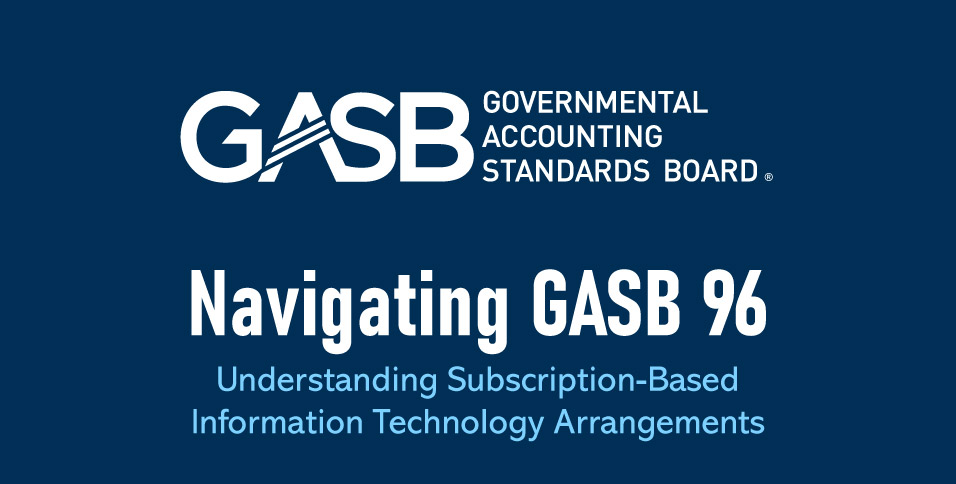The Governmental Accounting Standards Board (GASB) Statement No. 96, “Subscription-Based Information Technology Arrangements” (SBITAs), represents a significant step towards modernizing and standardizing the accounting practices for governmental entities. This standard, effective for fiscal years beginning after June 15, 2022, with earlier application encouraged, sets forth the guidelines for accounting and financial reporting for subscription-based information technology arrangements. This blog post delves into the requirements of GASB 96, its applicability, and the implications of non-compliance for governmental entities.
What is GASB 96?
GASB 96 provides a framework for governmental offices to account for subscription-based information technology arrangements like computer equipment. Essentially, it treats these subscriptions as right-to-use assets, requiring entities to recognize a corresponding liability. The standard aims to improve the comparability and consistency of financial statements by ensuring that governments report these IT arrangements accurately and transparently.
Who Does GASB 96 Apply To?
GASB 96 applies to all state and local governments that enter into subscription-based IT arrangements. This includes a wide range of governmental offices, from city councils and state departments to public schools and universities. The standard covers arrangements that grant a right to use a vendor’s IT software, hardware, or both over a period in exchange for payment. It encompasses cloud-based services, where the government does not take possession of the software but has the right to use it.
Key Requirements of GASB 96
GASB 96 requires that governmental entities recognize a right-to-use asset and a corresponding liability at the commencement of the subscription term. The right-to-use asset should be amortized over the term of the subscription, and any outlays before the subscription term begins should be capitalized as prepayments. The GASB 96 standard also mandates disclosures related to the arrangement, including the description of the arrangement, the total amount of the assets recognized, and the terms and conditions related to termination or extensions.
Consequences of Not Complying
Failure to comply with GASB 96 can have several consequences for governmental entities:
Financial Reporting Implications
Non-compliance can lead to inaccuracies in financial statements, affecting the reliability and comparability of the entity’s financial reporting. This can mislead stakeholders, including taxpayers, creditors, and grantors, about the entity’s financial health and commitments.
Audit Findings
Governmental entities are subject to audits, and non-compliance with GASB standards, including GASB 96, can result in negative audit findings. Such findings can impact the entity’s reputation, lead to questions about management’s competence, and potentially affect the entity’s ability to secure funding.
Legal and Regulatory Repercussions
While GASB itself does not enforce penalties, non-compliance with accounting standards can trigger scrutiny from regulatory bodies or legislative entities. Depending on local laws and regulations, this could lead to legal consequences or mandates for corrective action.
Impact on Bond Ratings
For entities that issue municipal bonds, non-compliance with GASB standards can signal poor financial management to rating agencies, potentially affecting their bond ratings. Lower bond ratings may lead to higher borrowing costs, directly impacting taxpayers.
Are You GASB 96 Compliant?
GASB 96 represents a pivotal shift in how governmental entities account for subscription-based information technology arrangements, aiming to enhance transparency and consistency across financial statements. By recognizing the right-to-use assets and related liabilities, entities can provide a clearer picture of their financial commitments and resources. Compliance with GASB 96 is crucial for accurate financial reporting, maintaining stakeholder trust, and avoiding negative repercussions. Governmental entities should ensure they understand the requirements of GASB 96 and implement necessary changes to their accounting practices to remain compliant. As we move further into the digital age, adherence to such standards will only become more critical in reflecting the true financial position and performance of governmental entities.
Learn more about GASB 96 at ezlease.com.
Also Read: Celnet Technology: Delivering Enterprises With Innovative Information Management Solutions














